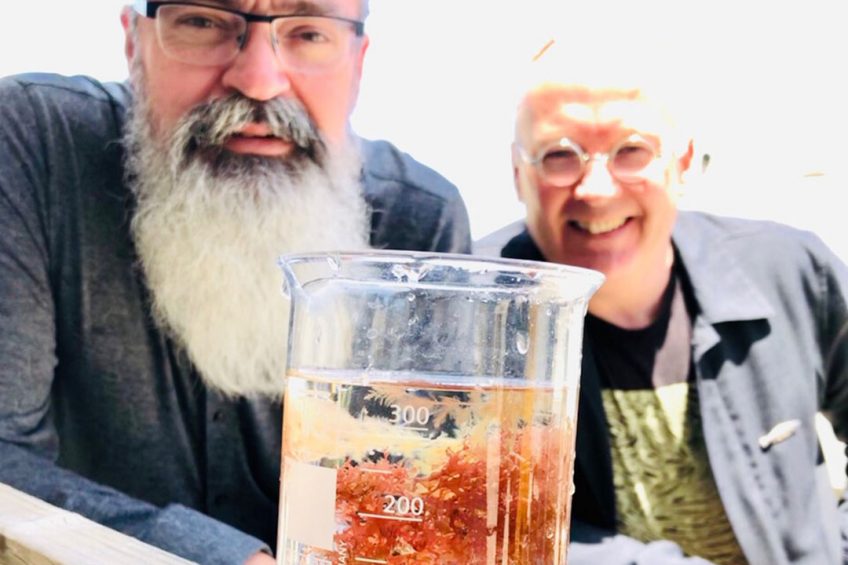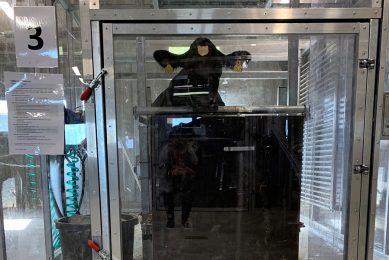Seaweed supplement in dairy cows’ diets lower carbon profile

Adding 1% or less of a dried supplement of the red seaweed Asparagopsis armata to the diet of dairy cows, can reduce their methane emissions by up to 90%, research suggests. For dairy farmers this could mean producing milk with a lower carbon profile.
CH4, a company based in New Zealand, Australia and the United States, aims to start production of this supplement soon.
Asparagopsis armata is an Australian and New Zealand-native species. This cold water variety is a naturally abundant seaweed that is perfectly suited to the Australian and New Zealand climate for sustainable, long-term aquaculture, according to CH4.
Asparagopsis production & market
The company intends to grow the Asparagopsis in offshore aquaculture farms in New Zealand and in South Australia, to eventually export it worldwide. The first markets for CH4 will be Australia and New Zealand, and possibly California. “We have already been contacted by farmers who want to use the product for their animals today,” says CEO, Dr Steve Meller. “And we are exploring partnership arrangements in South East Asia and Europe.”
This year CH4 will have a limited setup of 1 hectare. “We will need enough material for more research and development,” Dr Meller explains. By the end of 2021 CH4 aims to have seaweed production going in 20 hectares of aquaculture farms. This should produce enough Asparagopsis to supply 10,000 cows.
“We already spent a year researching suitable locations,” Dr Meller says. “You need to have all sort of conditions right around things like temperature, water flows and nutrient and carbon dioxide levels.”
Series of studies
CH4 was started 18 months ago in New Zealand by CEO Steve Meller and a group of four other founders. “We knew of several developments when we founded the company,” says Dr Meller. “California, where I live, had passed regulations requiring reducing methane emissions by 40% by 2030, from its 1.8 million dairy cows. I also knew that there was no technology commercially available on the planet that could do that.”

Another development, that got the attention of the founders back then, was the announcement from the New Zealand Prime Minister, that it would be carbon neutral by 2050. “There are 10 million cows in New Zealand. So this is impossible without major impact on the dairy sector,” Dr Meller points out.
Dr Meller was also aware of a series of studies by Dr Rob Kinley from by the Australian agency for scientific research CSIRO, uncovering the ability of the red seaweed Asparagopsis to have a profound reduction effect in methane from ruminant animals.
The most recent study from CSIRO published just a few months ago shows that steers receiving 0.10% and 0.20% Asparagopsis in their feed demonstrated decreased methane up to 40% and 98%, and demonstrated weight gain improvements of 53% and 42%, respectively. There was no negative effect on daily feed intake, feed conversion efficiencies, or rumen function, and no residues or changes in meat eating quality were detected.
Reducing the release of methane
Ruminants have four stomachs – the first one contains many bacteria that help to breakdown the feed. Cows are also able to digest cellulose in plants. Among their microbes cows have methanogens, that in the process of fermentation produce methane and water. This is usually released when the cow burps.
Research has shown that methanogens are not essential to the health or growth of a cow. Scientists have found that the chemical bromoform in seaweed inhibits the methanogens, and so reduces the release of methane. However, Asparagopsis seems to be the only species of seaweed that stores and concentrates bromoform.
CH4 is planning to freeze dry the red seaweed to optimise the bromoform levels inside the seaweed, using specific processing knowledge. “Processing it the right way is very important,” Dr Meller points out. “We have learnt how to manage the processing of the seaweed to maintain bromoform inside the plant. As a result, cows now produce volatile fatty acids and not methane so the cows will actually have a better feed efficiency. Cows will be more productive.”
Backed by government
CH4 has recently received an AUD $80,000 grant from the South Australia State Government. Earlier an amount of AUD $175,000 for project research was funded by The Fisheries Research and Development Corporation, the State Government and CH4. The company also received a NZD $500,000 Provincial Growth Fund grant last year in New Zealand to support its work there too. The company is still seeking investors to further upscale its operation.

After 2021, CH4 will be working on upscaling the production to at least 300 hectares. “But what the timeline of this will be, will depend a lot on market demand in different regions,” Dr Meller says.
Dr Meller says that the price of the dried seaweed has to still be announced. “If a farmer only gets 15% more for his milk, he will more than pay for the supplement,” he says. “At the end of the day our objective is for dairy farmers to be able to put money in their pockets by using this product. First of all there is the value of reducing the carbon output for the farmer. That will be a credit. And there also will be an increase of productivity. Cows will get bigger faster and produce more milk.”
Farmers will also save money on supplements, says Dr Meller. “Because we provide a supplement that will have a nutritional profile with many vitamins and minerals. And one other huge advantage to farmers will be the fact that they will produce cow milk with a carbon profile lower than nut and plant based milk alternatives. Consumers are demanding low carbon products and now he will be able to meet that need. ”
For more info: CH4









